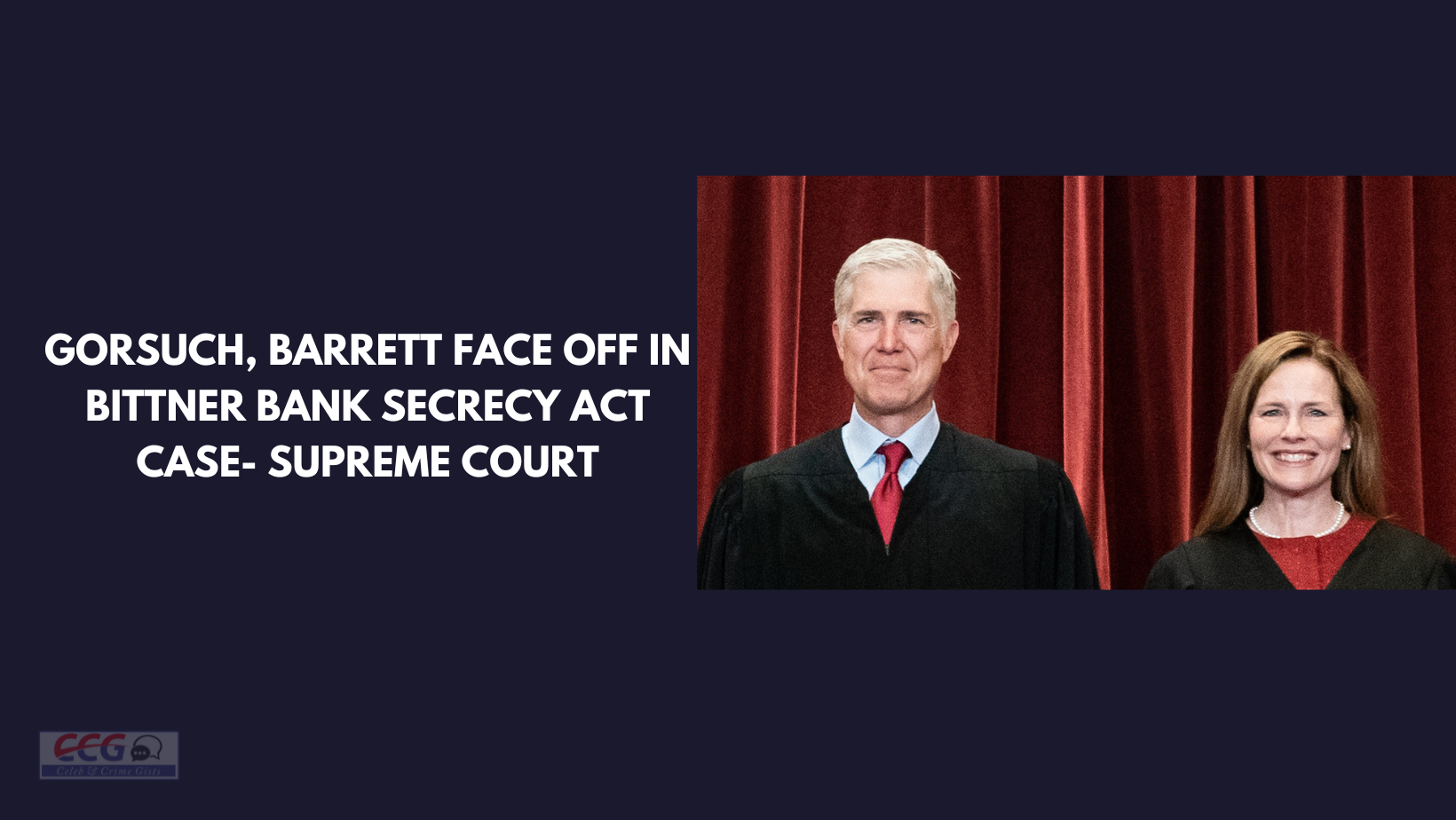Gorsuch, Barrett Face Off In Bittner Bank Secrecy Act case- Supreme Court’ In an unusual lineup, the Supreme Court ruled 5-4 in favor of a U.S. citizen who violated federal law by failing to disclose millions of dollars held in foreign bank accounts.
Gorsuch, Barrett Face Off In Bittner Bank Secrecy Act case- Supreme Court
Justice Neil Gorsuch led the majority, which also included Justices Ketanji Brown Jackson, Samuel Alito, Brett Kavanaugh, and Chief Justice John Roberts. The equally unusual dissenting lineup included Justices Clarence Thomas, Sonia Sotomayor, Elena Kagan, and Amy Coney Barrett, who penned the brief dissent.
ALSO READ: Justice Ketanji Brown Jackson’s First Supreme Court Majority Opinion
In Bittner v. United States, Alexandru Bittner presented a circuit split to the high court. Bittner, a dual citizen of both Romania and the U.S. who moved back to Romania in 1990, held hundreds of foreign bank accounts containing $70+ million in income. Under the Bank Secrecy Act, Bittner was required to file an annual Report of Foreign Bank and Financial Accounts (FBAR) disclosing his foreign accounts. Bittner filed a report after the legal deadline, and the IRS fined him $10,000 per account, racking up more than $2.7 million in civil penalties for the 272 accounts.
At issue was whether the statute triggered a penalty that should have been calculated per account or simply per filing of an annual report. Under the Fifth Circuit’s interpretation of the statute, Bittner would face a $50,000 fine. Under the Ninth Circuit’s interpretation of the same statute, however, Bittner would have faced a penalty of $2.72 million. Had Bittner been accused of an intentional (and therefore criminal) violation of the statute, the differing interpretations would have resulted in the choice between a $1.25 million versus $68 million in fines and 25 versus 1,360 years imprisonment.
In the majority’s 16-page opinion, Gorsuch said that the outcome of the case “makes a difference, especially for immigrants who hold accounts abroad and Americans who make their lives outside the country.”
In analyzing the question at hand, the majority relied on the specific wording of the statute and standard canons of statutory interpretation, noting that the word “account” does not appear anywhere in the relevant language.
Gorsuch also called out the government for attempting to penalize Bittner without giving him fair warning under the statute that punishments would be handed out on a per-account basis:
Nowhere in these materials did the government announce its current theory that a single deficient or untimely report can give rise to multiple violations, that the number of non-willful penalties may turn on the number of accounts, or that the $10,000 maximum penalty may be multiplied 272 times or more without respect to an individual’s foreign holdings or net worth.
The majority also leaned on the “rule of lenity,” a principle in criminal law that mandates that any time a criminal statute is unclear, a court should interpret it in a manner that is most favourable to the defendant. Gorsuch said that in Bittner’s case, the rule requires a per-report approach as opposed to a per-account theory.
Gorsuch also called the government’s attempt to assess a massive penalty against Bittner “incongruous” with how it would have treated someone with a single high-balance account. The justice described the problem this way:
Consider someone who has a $10 million balance in a single account who nonwillfully fails to report that account. Everyone agrees he is subject to a single penalty of $10,000. Yet under the government’s theory, another person engaging in the same nonwillful conduct with respect to a dozen foreign accounts with an aggregate balance of $10,001 would be subject to a penalty of $120,000.
Barrett and her fellow dissenting justices, however, dismissed Gorsuch’s example as “not an apples-to-apples comparison,” and drew a distinction between a person who willfully violates the law one time versus one who violates that same law multiple times.
Barrett wrote that even though Bittner “held as much as $16 million across more than 50 bank accounts in Romania, Switzerland, and Liechtenstein” and “failed to report 272 accounts,” he minimized his own wrongdoing by arguing that he violated the law only five times. Such an interpretation of his legal obligations, said Barrett, amounts to a “fundamental misunderstanding” of what the law required of Bittner.
Barrett also took aim at Bittner himself, making it clear that those in dissent were not convinced that Bittner’s failure to file reports should be treated as an innocent oversight:
READ: Twitter CEO: Billionaire Elon Musk Hopes To Have Twitter CEO Toward The End Of Year
…Bittner “put no effort into ascertaining” those obligations despite operating as a sophisticated business professional who held “interests in dozens of companies, negotiated purchases of Romanian government assets, transferred his assets into holding companies, and concealed his earnings in ‘numbered accounts.””
Later, the dissenting justice pointed out, Bittner noticeably “abandoned” his argument in defense that his failure to file had been supported by “reasonable cause.” That defense, said Barrett, “is available to litigants who can satisfy it”—perhaps implying that Bittner’s failure to disclose accounts warranted the harsh penalties the government sought to impose.
You can read the full opinion here.
In past cases, Gorsuch and Barrett have almost always been aligned in votes. The justices found themselves on opposite sides in Becerra v. Empire Health Foundation and Concepcion v. United States—both 5-4 decisions that preceded Jackson’s appointment as a Supreme Court justice.
[Photo by Erin Schaff-Pool/Getty Images]
Have a tip we should know? [email protected]


